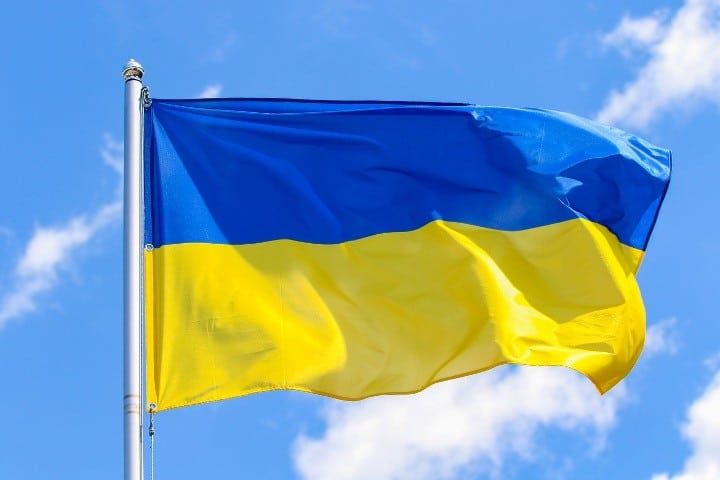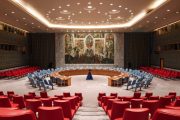
SINGAPORE — Various senior Ukrainian officials resigned on Tuesday (Jan. 24) in the largest leadership purge since the military conflict with Russia last February, with an aide of President Volodymyr Zelensky allegedly responding to public cries for “justice.”
Some of the resignations were related to claims of corruption. Ukraine has a track record of corruption and unstable governance, and faces global pressure to prove that it can be a reliable recipient of billions of dollars in Western aid. Kyiv’s Western allies, which have channeled billions of dollars in financial and military support, have been lobbying for anti-corruption reforms for years, occasionally as a precondition for the aid, yet efforts to eradicate graft have been overshadowed by Ukraine’s full-scale war with Russia.
According to the Center for Economic Strategy, a Ukrainian think tank, the total amount of Western military and financial support for Kyiv could total US$100 billion in 2023, including over US$40 billion for its armed forces, as Ukraine readies itself for anticipated offensives this spring.
In the recent purge, the government dismissed the governors of five battlefield provinces — the Kyiv, Sumy, Dnipropetrovsk, Kherson, and Zaporizhzhia regions — and an assortment of other senior officials.
“There are already personnel decisions — some today, some tomorrow — with respect to officials at various levels in ministries and other central government structures, as well as regions and law enforcement,” Zelensky said in an overnight video address.
His aide, Mykhailo Podolyak, tweeted: “The president sees and hears society, and he directly responds to a key public demand — justice for all.”
Ukraine’s Deputy Defense Minister Vyacheslav Shapovalov; the deputy head of the presidential administration, Kyrylo Tymoshenko; and deputy prosecutor-general Oleksiy Symonenko were some of the top officials who resigned.
The defense ministry announced the resignation of Shapovalov, who oversaw the army’s logistical support, based on claims that he was signing food contracts at inflated prices. Local media reports last week accused the ministry of having signed a deal at prices “two to three times higher” than current rates for basic foodstuffs. In a statement, the ministry posited that the allegations were “unfounded and baseless” but said that Shapovalov’s departure would “preserve the trust of society and international partners.”
Tymoshenko, who has cooperated with Zelensky since his election in 2019 and was in charge of regional policy, also declared his resignation on Tuesday. He posted a photo of himself with a handwritten resignation letter, thanking Zelensky for the “opportunity to do good deeds every day and every minute.” He had been embroiled in several scandals during his stint, including in October 2022 when he was blamed for using a car donated to Ukraine for humanitarian purposes.
The dismissal of Symonenko came after media reports on his holiday in Spain this winter, supposedly using a car belonging to a Ukrainian businessman.
The shake-up comes in the wake of the firing of a Ukrainian deputy minister of development of communities, territories and infrastructure who was let go over the weekend following his arrest on allegations of embezzlement. In one of the first big corruption scandals to be publicized since the war began 11 months ago, Vasyl Lozynkiy was accused of obtaining a bribe to “facilitate” the purchase of generators at inflated prices as Ukraine faces a lack of electricity.
Zelensky said that he hoped the dismissal of Lozynkiy would send a “signal to all those whose actions or behavior violate the principle of justice.” “I want this to be clear: There will be no return to what used to be in the past,” he said.
The changes are a rare purge of an otherwise notably stable wartime leadership in Kyiv. Besides purging a spy agency in July, Zelensky has primarily remained with his team, built around fellow political novices he heralded into power.
The leadership revamp came amid Poland’s declaration that it had officially requested Germany’s permission to export German-made tanks to Ukraine. Poland’s request seemed to have left German Chancellor Olaf Scholz little room to continue postponing a decision in what has become the main contention among allies over how best to back Ukraine.
On Wednesday (Jan. 25), the United States and Germany outlined plans to dispatch to Ukraine dozens of advanced battle tanks, in a move praised by Kyiv as a potential turning point in its fight to repel Russia but slammed by Moscow as an “extremely dangerous” step.
Boasting that Ukraine now has a “tank coalition,” Zelensky praised the commitments and asked allies to provide large quantities of tanks quickly. “The key now is speed and volumes. Speed in training our forces, speed in supplying tanks to Ukraine. The numbers in tank support,” he said in his nightly video address.
Andriy Yermak, head of Ukraine’s presidential administration, highlighted in a post on the Telegram messaging app that the tank commitments so far were “only the beginning. We need hundreds of tanks.”
Moscow reacted with anger to Germany’s announcement. “This extremely dangerous decision takes the conflict to a new level of confrontation,” denounced Sergei Nechayev, Moscow’s ambassador to Germany.
“If the major Russian offensive planned for this [spring and summer] fails, it will be the ruin of Russia and Putin,” Vadym Skibitsky, deputy head of Ukraine’s military intelligence, said in an interview with news site Delfi.
Transparency International ranked Ukraine 122 out of 180 in its corruption ranking for 2021, and the European Union (EU) has indicated anti-corruption measures as one of the key criteria Ukraine has to have before obtaining its candidate status for the bloc.



